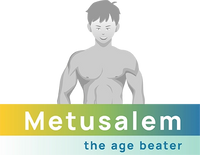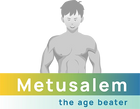Build a Sustainable Fitness Regimen for All Ages

Frequently Asked Questions
1. What is a sustainable fitness regimen?
2. How does age influence fitness needs?
3. What are the key components of a well-rounded fitness regimen?
4. Why is nutrition important for fitness?
5. How can I stay motivated in my fitness journey?
In today’s fast-paced world, maintaining a sustainable fitness regimen is becoming more important than ever, especially as we navigate our busy lives. From children to seniors, engaging in regular physical activity is essential for health and well-being. However, not everyone knows how to develop a fitness routine that suits their age, lifestyle, and individual fitness level. In this article, we’ll explore the key components of creating a sustainable fitness regimen for all ages, while also highlighting the importance of proper nutrition. Let's embark on this fitness journey together!
Understanding the Importance of Sustainability in Fitness
When we talk about a sustainable fitness regimen, we are referring to a routine that can be maintained over the long term without leading to burnout or injuries. The concept of sustainability not only applies to exercise but also encompasses nutrition, recovery, and overall lifestyle choices. It’s essential to craft a fitness plan that feels rewarding and is integrated into daily life, rather than a temporary fix.
Why Age Matters in Fitness
Age plays a crucial role in determining the types of exercises and intensity levels suitable for an individual. The fitness needs of a child differ significantly from those of an adult or senior. Here are some insights into how age influences fitness:
- Children: Young ones are typically bursting with energy. Their fitness regimens should focus on play-based activities that develop coordination, strength, and endurance.
- Adults: In this stage of life, individuals often seek fitness routines that balance responsibility with lifestyle changes, focusing on both physical and mental health.
- Seniors: As we age, our bodies require gentler forms of exercise. Low-impact workouts, flexibility, and balance exercises become increasingly important.
Components of a Well-Rounded Fitness Regimen
A well-rounded fitness regimen for all ages consists of multiple components. By incorporating strength training, cardiovascular exercise, flexibility and balance work, and a proper support system, you can create a dynamic plan that can adapt to life’s changes.
Strength Training
Strength training is vital for all age groups. It helps build and maintain muscle mass, which naturally decreases with age. Engaging in muscle-strengthening activities at least twice a week is crucial, regardless of how old you are. Here are some suggestions:
- Children: Use bodyweight exercises such as push-ups, squats or fun obstacle courses.
- Adults: Incorporate resistance bands, weights, or even body weight exercises to create a challenging routine.
- Seniors: Focus on light weights or resistance exercises that promote joint stability and functional strength.
Cardiovascular Exercise
Cardiovascular workouts are essential for heart health and overall fitness. These activities increase heart rate, improve endurance, and promote better circulation. Sustainable cardio activities include:
- Children: Encourage activities like running, swimming, or biking in an enjoyable manner!
- Adults: Opt for walking, jogging, cycling, or group fitness classes. Find something that keeps you motivated!
- Seniors: Gentle walking or aqua aerobics works wonders for older adults, keeping them active without causing undue stress.
Flexibility and Balance
Flexibility and balance are often overlooked components of fitness but are essential at all age stages. Increased flexibility can enhance overall mobility and performance while balance work can prevent falls, particularly among seniors.
- Children: Incorporate fun practices like yoga or gymnastics!
- Adults: Activities like yoga, Pilates, and stretching approaches improve flexibility.
- Seniors: Simple flexibility routines combined with balance exercises using chairs or handrails can be beneficial.
Nutritional Support for Your Fitness Regimen
What we ingest greatly affects our physical performance and overall health. Nutrition should complement your exercise regimen for optimal results. Incorporating a balanced diet with a variety of food sources, including a non-dairy protein source, can significantly benefit individuals of all ages.
The Role of Protein in Your Diet
Protein is vital for muscle repair and growth. Consuming enough protein can empower your body to recover effectively and become stronger. Incorporating a non-dairy protein source such as legumes, nuts, seeds, or plant-based protein powders is an excellent way to ensure you’re meeting your nutritional needs while also catering to dietary preferences or restrictions.
Hydration is Key
Staying hydrated is an often neglected aspect of fitness, yet it is crucial for overall performance and recovery. Drink plenty of water before, during, and after exercise. If your workouts are long or intense, consider electrolyte-rich drinks as well.
Creating Your Sustainable Fitness Plan
Now that we've discussed the fundamental aspects of a sustainable fitness regimen, let’s explore how to create a personalised plan that caters to all ages.
Set Realistic Goals
It’s important to be realistic when defining your fitness goals. Start with small, achievable targets. For instance, aim to exercise at least three times a week for a specific duration, adjusting as you progress.
Create a Schedule
Having a structured plan helps integrate fitness into your daily routine. Create a weekly schedule that includes various workouts—strength, cardio, flexibility—as well as dedicated rest days. Remember, consistency is key!
Listen to Your Body
Everyone’s fitness journey is unique. Pay attention to your body’s signals; if something feels off or causes discomfort, it’s essential to modify your routine accordingly. Rest days are just as crucial as training days, as this is when the body repairs and strengthens.
Staying Motivated and Overcoming Challenges
Staying motivated throughout your fitness journey can sometimes be challenging. Here are some tips to help maintain enthusiasm:
- Find a Workout Buddy: Exercising with a friend or family member can increase accountability and make workouts more enjoyable.
- Try New Activities: Experimenting with various types of workouts can add excitement to your routine. Think dance classes, hiking, or martial arts!
- Track Your Progress: Keep a journal of your workouts and dietary habits. Celebrate your successes, no matter how small!
- Set Challenges: Set personal challenges or compete with friends to keep the competitive spirit alive and engage with your fitness journey.
The Community Aspect of Fitness
Incorporating a social aspect to your fitness journey can foster collaboration, encouragement, and shared experiences. Local classes, community events, and online support groups offer valuable opportunities to connect with like-minded individuals.
The Benefits of Group Fitness
Group fitness classes present a wonderful opportunity to engage with others and maintain motivation. Whether it’s a yoga class at the local gym or a cycling group in your neighbourhood, being part of a community can be incredibly uplifting and supportive.
Final Thoughts on Your Fitness Journey
Developing a sustainable fitness regimen for all ages is essential for nurturing overall health, happiness, and longevity. Remember, the goal is not just to exercise but to create a lifestyle that incorporates movement, nutrition, and a sense of community. Embrace the journey, celebrate your progress, and remember that it’s never too late to start. Incorporate a non-dairy protein source into your diet and stay active with family and friends. Together, we can build a healthier world—one step at a time!
Discover the creations of a fellow Shopify or Wix store owner. Check out their online store here. Please remember that this is a promotional link, and we are not liable for the content of the linked store.

